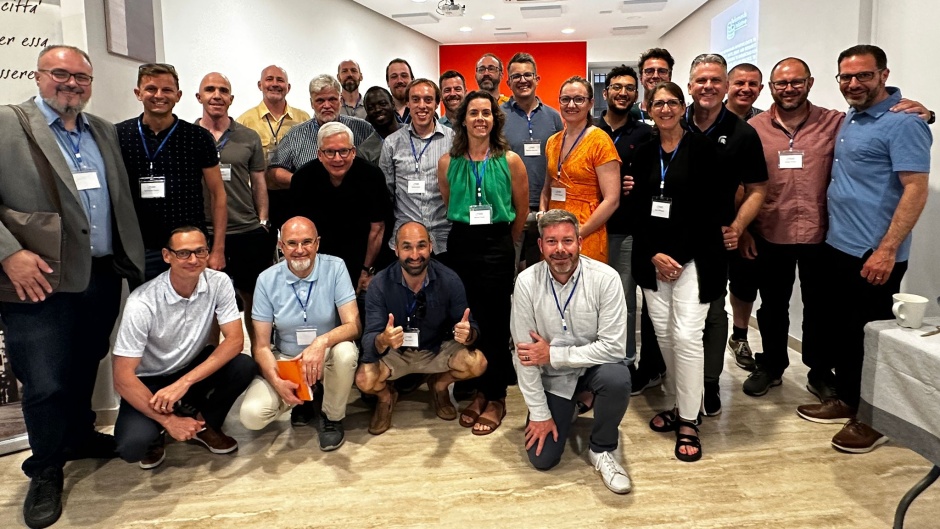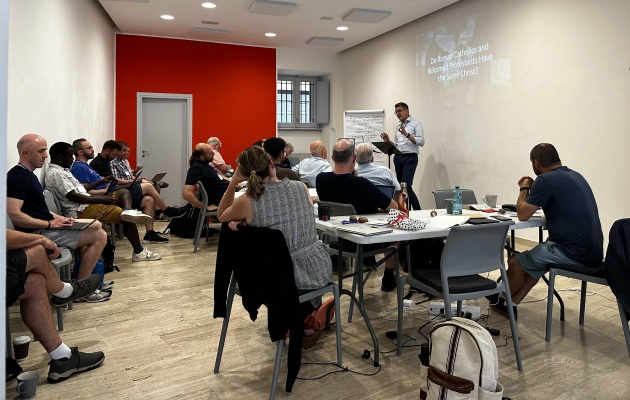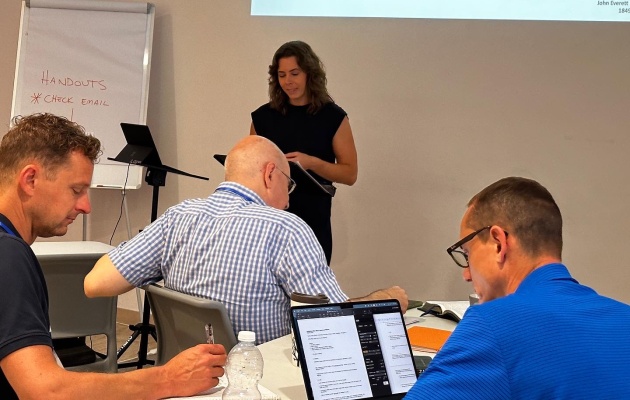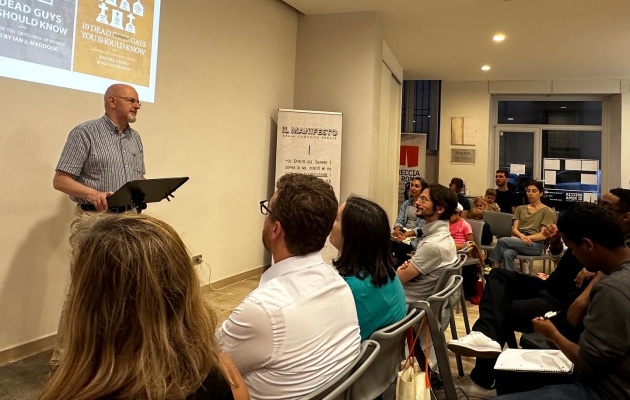An evangelical think tank to deal with Roman Catholicism
The sixth edition of the Rome Scholars and Leaders Network was held in Rome.
ROME · 20 JUNE 2023 · 10:03 CET

Roman Catholicism is the largest institutionalized religion in the world (1.3 billion people identify as Catholics) and the interpreter of an account of the “gospel” other than the biblical one.
Yet, in the global evangelical world there are no training initiatives dedicated to developing an evangelical understanding of the Roman Catholic universe. With one exception: the Rome Scholars and Leaders Network (RSLN).

Now in its sixth edition, the RSLN took place in Rome from 12 to 15 June with 27 participants from (almost) all over the world: Europe, Africa, the Americas, Oceania.
These are theology professors, scholars, pastors and leaders of evangelical agencies who for 4 days animated 17 sessions on themes and issues related to the evangelical analysis of Roman Catholicism as an integrated system in which doctrines, practices and institutions are an expression of deep commitments that are not submitted to the supremacy of Christ (Christ alone) and to the primacy of Scripture (Scripture alone).
Theology professors, scholars, pastors and leaders of evangelical agencies animated for 4 days and 17 sessions
Much evangelical superficiality depends on a one-sided, sentimental, or flattened reading of the “slice” of Roman Catholicism that one is most familiar with, without taking into account the reality of the “whole”, a system that is doctrinal, sacramental, devotional, institutional and that has lasted for at least fifteen centuries.Although crossed by internal crises, Rome has a “Catholic” vitality that wants to absorb the whole world in its “Roman spirit”.

The sessions of the RSLN dealt with, among other topics, the axis of the Roman Catholic system: the nature-grace interdependence and the Christ-church interconnection (Gregg Allison), the Roman Catholic theology of the temple (Clay Kannard), the centrality of Vatican II to understand the current Catholic dynamics (Leonardo De Chirico), the deep structures of Mariology (Rachel Ciano and Lauren Moore), the guidelines of the “synodal path” (Reid Karr), interpretative keys of Thomism (Bradley Green), justification by faith before the Reformation (Andrew Messmer), the doctrine of atonement (Robbie Bellis), and Christology (Matt Johnston) as case-studies to appreciate the differences between Roman Catholicism and the evangelical faith.
As tradition, RSLN also hosted a session with a Roman Catholic theologian (this year Prof. Giulio Maspero of the Pontifical University of the Holy Cross) with whom there was an interesting dialogue on the relationship between Catholics and Evangelicals.
This dialogue highlighted how similar words used (for example: gospel, mission, unity) correspond to different meanings.
The lack of commitment to “Christ alone” and to “Scripture alone” makes Roman Catholic doctrine and practice distant from the evangelical faith
Another tradition of the RSLN is to host a public evening that is open to the public and Roman evangelical churches so that they might benefit from the work of our participants.

This year, a professor of the RSLN, Rachel Ciano, engagingly present her latest book, Ten Dead Gals You Should Know (Christian Focus, 2023) to a varied audience.
The fact that the RSLN is held in Rome is an added value that allowed the participants not only to discuss Roman Catholicism, but also to see it represented in unique cultural forms that are linked to the city of Rome (Vatican, Catholic universities, churches, practices).
After Vatican II, Roman Catholicism has opened the arms of its catholicity to embrace non-Catholic Christians, other religions, the whole of humanity, stretching its ability to integrate all.
Evangelicals have not always responded to this change of emphasis by understanding what happened and therefore not having the appropriate tools to deal with it.
RSLN is a think tank that is helping the evangelical world to develop an understanding of Roman Catholicism that is faithful to the Bible and in line with what evangelicals have always considered their ultimate commitments: “Christ alone” and “Scripture alone”.
Leonardo De Chirico, author, evangelical pastor in Rome and Director of the Reformanda Initiative.
Published in: Evangelical Focus - Vatican Files - An evangelical think tank to deal with Roman Catholicism
